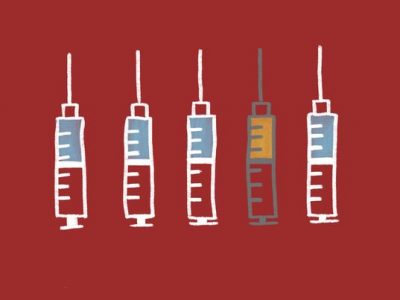When researchers discovered the AstraZeneca COVID-19 vaccine had triggering elements that could cause blood clots, more than a dozen countries immediately suspended vaccine administrations.
The suspension of the AstraZeneca vaccine sparked debates between those who believed the suspension was either rational or ineffective. While some were in favor of the suspension of the vaccine, others argued that even a temporary halt can stall a country in its path to eradicating COVID-19 as soon as possible.

Two economic analysts, Eyck Freymann and Elettra Ardissino, argued the decision to suspend administration of the AstraZeneca vaccines was “unscientific, will derail the reopening, and could result in thousands of unnecessary deaths,” in a Foreign Policy magazine article.
So far, the benefits seem to outweigh the risks, according to scientists who are ensuring the safety of the vaccine. In fact, the European Medicines Agency and the World Health Organization concluded that the vaccine was safe enough to use, urging and recommending the vaccines continue, though these reports have recently been questioned by U.S. health officials.
The article reports vaccine administration in the European Union is already lagging behind — 7.9% of the population had their first vaccine shot compared to 37.2% in the United Kingdom and 21.7% in the United States.
Additionally, the EU has dealt with limited supplies of vaccine and vaccine hesitation. As a result, the delay of the first rollout, toppled with supply shortages and skepticism, has placed the EU at a disadvantage.
If the EU continues to lag in its current state or even worse, slip, then it could cause a potential third wave of infections. A report by the European Centre for Disease and Control Protection from Thursday illustrated an increase in coronavirus-positive cases and death rates, manifesting the preceding theory into reality.
Europeans would either have to stay locked down through the summer as other countries slowly return to normalcy or succumb to another spike of positive cases and hospitalization. I think it would be a shame for the latter to happen, because in a world where eradicating the virus is a top priority, it’s crucial for the EU to catch up to other countries even if it means continuing with AstraZeneca.

On the other hand, it’s only natural that the reports of side effects would generate fear and uneasiness among AstraZeneca vaccine users.
Of the 17 million people who have gotten the AstraZeneca vaccine shot in the EU and U.K., fewer than 40 people have experienced thromboembolic effects — or developing blood clots — after receiving it.
That number might be low, but the occurrence of these side effects is a legitimate reason for doubt and distrust.
Freymann and Ardissino argued, in the short run, a temporary suspension of the AstraZeneca vaccine could result in “thousands of unnecessary deaths.” However, I truly believe it was the right decision.
The coronavirus is a new strain of a virus that had not been previously detected, which is why it’s best to err on the side of caution.
What if we decide to continue the use of AstraZeneca vaccines, and later down the line scientists discovered a concrete link between the vaccine and the reported side effects? By that time, millions of people would have received the vaccine, meaning it would be a risk for them too.
It’s always good to be cautious of health risks that could cause serious illnesses or even death. In fact, it’s reassuring that countries are halting AstraZeneca vaccine roll-outs to investigate whether the side effects are linked to the vaccinations or not.




